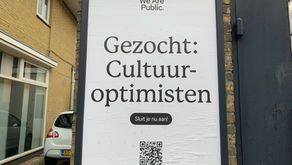Robin Miller
- Judith Weir
- Jun 22, 2018
- 2 min read

In leafy Burgh House (pictured) a concert by the Lonarc Trio celebrated the life of British oboist Robin Miller (1942-2014). I wasn’t going to miss this, as Robin had been my oboe teacher during my last two years at school, a period when he became co-principal oboe of the BBC Symphony Orchestra and also played with a wild new group called the London Sinfonietta. I can even remember him recording a track with Robert Fripp of King Crimson.
Just thinking about this period brought back not just Robin, but the incredible wave of musical creativity that hit London during those years. As a schoolgirl from the outer suburbs, I already knew I was fortunate to be experiencing it via my oboe lessons, even when dragging myself through the Gillet Studies (don’t ask). At the BBCSO Robin worked daily with their then principal conductor Pierre Boulez, and he would come home with amazing anecdotes. ‘Boulez asked us to play a note of shimmering golden fire, for as long as possible, sounding all round the universe...’ (this may have been the legendary day the BBCSO decided to tackle Stockhausen’s Setz die Segel zur Zonne.)
Suave and witty in person, Robin was also an actual craftsman, able to approach the fraught area of reed-making with considerable technical skill. Introducing this concert by the Lonarc Trio, Mary Miller rightly pointed out the litter of oboe stuff, Rizla papers, water containers, reed knives on the floor beneath the performers’ feet, extremely familiar to her from her years married to an oboist. The Lonarc Trio, two oboes and cor anglais, play Mozart-era original music. We learned that this repertoire (including a Beethoven Trio) bloomed thanks to the recent invention of the cor anglais, whose name should in fact be ‘cor angelique’. I marvelled at the stamina of these fine professionals, able to play their physically exhausting instruments continuously for ninety minutes, with unfailing sprightliness and invention.






